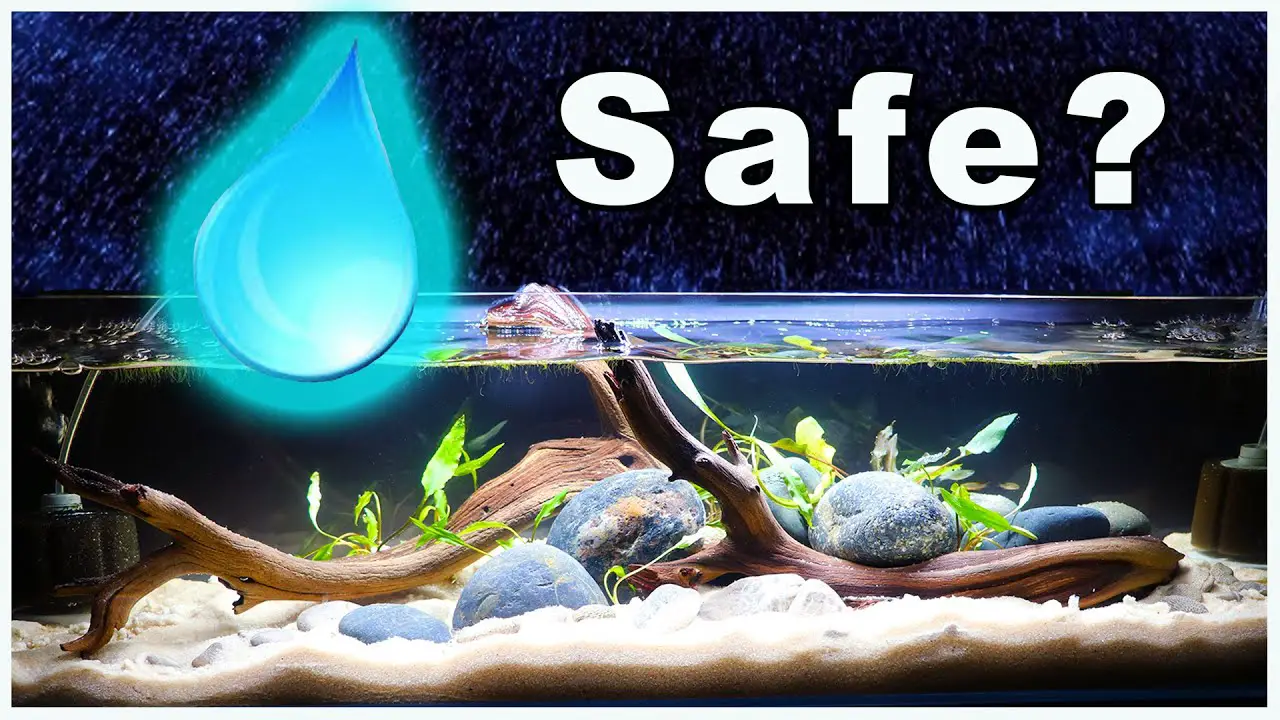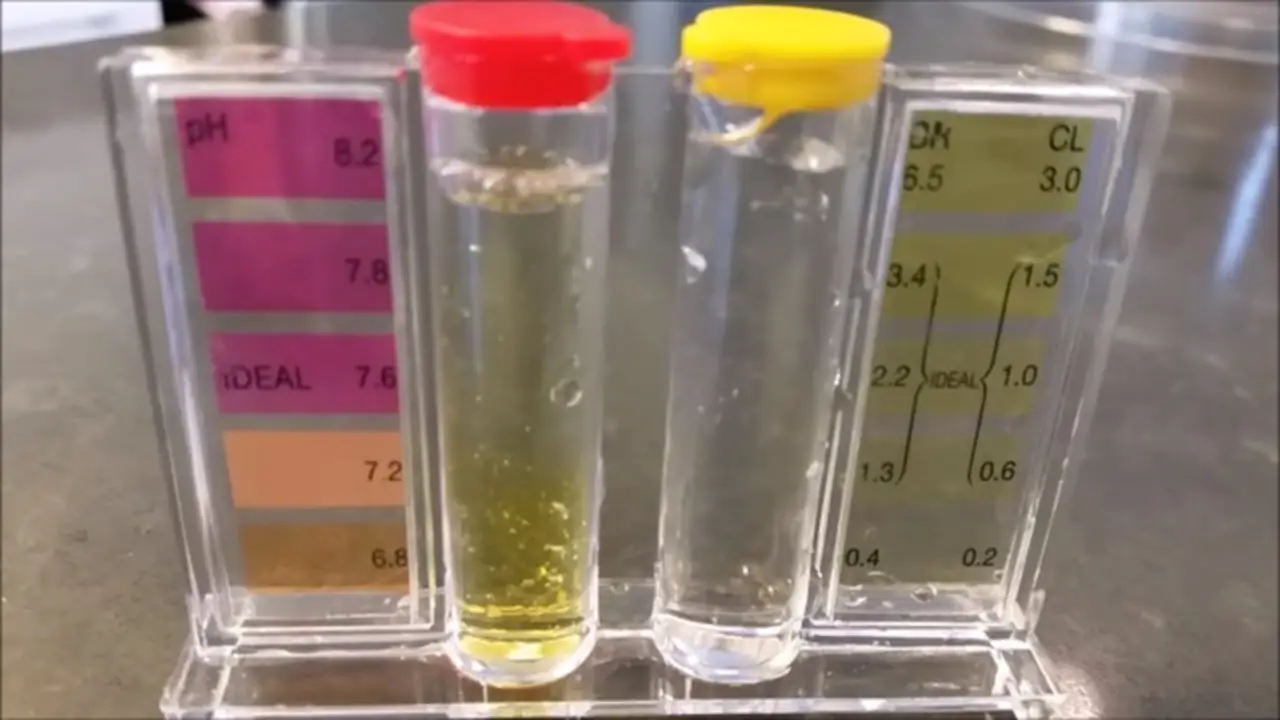Have you ever wondered if rainwater can be used for your aquarium? Rainwater is often considered purer than tap water, but is it safe for your fish and aquatic plants? In this article, we’ll explore the benefits and potential risks of using rainwater in your aquarium, and help you make an informed decision about the best water source for your aquatic pets.
Whether you’re a seasoned aquarist or just starting out, understanding the water you use in your aquarium is crucial to the health and wellbeing of your aquatic pets. Rainwater can offer a range of benefits, but there are also some important factors to consider before incorporating it into your aquarium routine. So, let’s dive in and explore the pros and cons of using rainwater in your aquarium.
Rainwater is generally considered safe for aquarium use, as long as it is collected properly and free from pollutants. However, it may lack essential minerals and nutrients required by aquatic plants and animals. It is recommended to test the pH and hardness of rainwater and supplement it with necessary minerals before using it in an aquarium.

Is Rainwater Good for Aquariums?
Rainwater is a natural and free source of water that many aquarium hobbyists consider using for their aquariums. However, is rainwater really good for aquariums? The answer is not straightforward, and there are both advantages and disadvantages to using rainwater in your aquarium.
Advantages of Using Rainwater in Aquariums
Rainwater is naturally soft and has a low pH level, which makes it ideal for certain species of fish and plants that require these conditions. Soft water is water that has low levels of dissolved minerals, while a low pH level indicates that the water is slightly acidic. These conditions are especially suitable for fish species that originate from rainforest regions, such as tetras, angelfish, and discus.
Rainwater is also free of chlorine and other chemicals that are commonly found in tap water. Chlorine is added to tap water to kill bacteria and other microorganisms, but it can also harm beneficial bacteria in your aquarium. Rainwater also lacks the minerals that are added to tap water, which can cause hardness and alkalinity issues in your aquarium over time.
Benefits of Using Rainwater in Aquariums
– Naturally soft and low pH level
– Free of chlorine and other chemicals
– Lacks minerals that cause hardness and alkalinity issues
Disadvantages of Using Rainwater in Aquariums
One of the biggest disadvantages of using rainwater in your aquarium is that it can be contaminated with pollutants and chemicals that are harmful to fish and plants. Acid rain, for example, can lower the pH level of rainwater to dangerous levels and introduce heavy metals and other toxins to your aquarium.
Another disadvantage of using rainwater is that it can be inconsistent in quality and quantity. If you live in an area with sporadic rainfall, you may not have enough rainwater to sustain your aquarium. Additionally, if you collect rainwater from a roof or other surface that has been exposed to debris, you may introduce dirt and other contaminants to your aquarium.
Disadvantages of Using Rainwater in Aquariums
– Can be contaminated with pollutants and chemicals
– Inconsistent in quality and quantity
– May introduce dirt and other contaminants
Using Rainwater in Aquariums: Best Practices
If you decide to use rainwater in your aquarium, there are some best practices that you should follow to ensure the safety and health of your fish and plants.
First, collect rainwater from a clean and safe source, such as a rain barrel with a mesh screen to filter out debris. You should also test the pH level and other water parameters of your rainwater before adding it to your aquarium.
It’s also a good idea to treat rainwater with a water conditioner that removes chlorine and other harmful chemicals, even if your rainwater appears to be free of these substances. Finally, you should avoid using rainwater during periods of heavy rainfall or when there is a risk of acid rain or other environmental pollutants.
Best Practices for Using Rainwater in Aquariums
– Collect rainwater from a clean and safe source
– Test the pH level and other water parameters
– Treat rainwater with a water conditioner
– Avoid using rainwater during periods of heavy rainfall or environmental pollutants
Rainwater vs. Tap Water
Rainwater and tap water each have their advantages and disadvantages when it comes to using them in aquariums. Tap water is generally more consistent in quality and quantity than rainwater, making it easier to maintain stable water parameters in your aquarium.
However, tap water can contain chlorine and other chemicals that can harm beneficial bacteria and fish in your aquarium. Tap water can also be hard and alkaline, which can cause issues for certain species of fish and plants.
In contrast, rainwater is generally free of chlorine and other chemicals, and it has a low pH level and is naturally soft, which can benefit certain species of fish and plants. However, rainwater can be inconsistent in quality and quantity, and it can be contaminated with pollutants and other harmful substances.
Rainwater vs. Tap Water for Aquariums
– Tap water is consistent in quality and quantity
– Rainwater is free of chlorine and other chemicals
– Tap water is hard and alkaline
– Rainwater is naturally soft and low pH level
– Tap water can harm beneficial bacteria and fish
– Rainwater can be contaminated with pollutants
Conclusion
In conclusion, using rainwater in your aquarium can be a viable option if you follow best practices and take into consideration the advantages and disadvantages of using rainwater. Before using rainwater in your aquarium, make sure to collect it from a clean and safe source, test its water parameters, and treat it with a water conditioner.
Ultimately, the decision to use rainwater or tap water in your aquarium depends on your specific needs and the species of fish and plants in your aquarium. By understanding the benefits and drawbacks of each option, you can make an informed decision that promotes the health and wellbeing of your aquarium.
Frequently Asked Questions
Rainwater is often considered as a natural source of water for aquariums. But, is it really good for the aquatic life in your tank? Here are the answers to some frequently asked questions about rainwater and aquariums.
Q1: Can I Use Rainwater for My Aquarium?
Using rainwater for your aquarium is not a good idea. Despite its natural origin, rainwater can contain pollutants and contaminants that can harm your aquatic pets. Rainwater can pick up pollutants from the air and rooftops, such as dust, dirt, chemicals, pesticides, and bacteria. These pollutants can alter the pH level and water chemistry of your aquarium, leading to stress and illness in your fish and other aquatic creatures. Therefore, it is recommended to avoid using rainwater for your aquarium and opt for treated tap water instead.
Q2: What Should I Do If I Want to Use Rainwater?
If you still want to use rainwater for your aquarium, you need to take some precautions to ensure its safety. First, collect the rainwater in a clean container, away from pollutants and debris. Second, filter the rainwater to remove any particles or contaminants. You can use a fine mesh or a commercial water filter for this purpose. Third, test the water quality of the rainwater using a water testing kit. Check for pH, hardness, and ammonia levels, and make sure they are within the acceptable range for your aquarium. Lastly, treat the rainwater with a dechlorinator and add essential minerals and nutrients to make it suitable for your aquatic pets.
Q3: What Are the Benefits of Using Rainwater for Aquarium Plants?
While rainwater may not be suitable for aquariums, it can be beneficial for the plants in your aquarium. Rainwater is naturally soft and acidic, which can promote plant growth and health. It also contains essential nutrients, such as nitrogen, phosphorus, and potassium, which are important for plant growth. Using rainwater for your aquarium plants can also reduce the risk of algae growth and improve the overall water quality. However, make sure to test and treat the rainwater before using it for your plants.
Q4: How Often Should I Change the Water in My Aquarium?
Changing the water in your aquarium is important for maintaining the health and cleanliness of your aquatic pets. The frequency of water changes depends on the size of your aquarium, the number and size of your fish, and the type of filtration system you have. As a general rule, you should change 10-20% of the water every week or every two weeks. This will remove any buildup of waste, toxins, and pollutants in the water, and provide fresh water and oxygen for your fish.
Q5: What Should I Do If My Aquarium Water Is Cloudy?
Cloudy water in your aquarium can be a sign of poor water quality and insufficient filtration. To clear up the water, you should first test the water quality using a water testing kit. Check for high levels of ammonia, nitrite, or nitrate, which can cause cloudiness and harm your fish. Secondly, check your filtration system and make sure it is working properly and efficiently. Clean or replace the filter media if necessary. Lastly, perform a partial water change to remove any excess waste and debris from the water.

Is it safe to use rain water for your fish?
In conclusion, rainwater can be beneficial for aquariums but it depends on various factors. If you live in an area with high levels of pollution, it’s not recommended to use rainwater. However, if you live in a clean area, rainwater can be a great source of soft water for your aquarium.
It’s important to note that rainwater can be acidic, so it’s essential to test the pH level before adding it to your aquarium. You can also use a water conditioner to neutralize the acidity.
Lastly, using rainwater can be a great way to save money on your water bill and provide a more natural environment for your aquatic pets. Just make sure to do your research and take proper precautions before using it in your aquarium.
